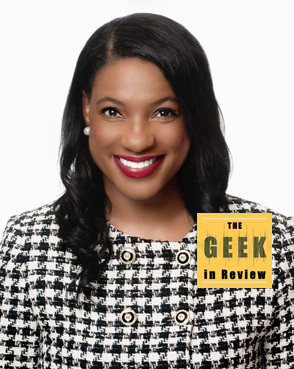 This week we are joined by LexisNexis’ Chief Inclusion and Diversity Officer and Head of Global Talent Development, Ronda Bazley Moore. Ronda and a team of LexisNexis leadership in the LexisNexis African Ancestry Network & LexisNexis Rule of Law Foundation Fellowship tasked 18 Fellows from Historically Black Colleges & Universities (HBCU) Law Schools with one very complex task: Uncover how LexisNexis products could be used to address and eliminate systemic racism in the legal system.
This week we are joined by LexisNexis’ Chief Inclusion and Diversity Officer and Head of Global Talent Development, Ronda Bazley Moore. Ronda and a team of LexisNexis leadership in the LexisNexis African Ancestry Network & LexisNexis Rule of Law Foundation Fellowship tasked 18 Fellows from Historically Black Colleges & Universities (HBCU) Law Schools with one very complex task: Uncover how LexisNexis products could be used to address and eliminate systemic racism in the legal system.-
Equity for Youth in the Legal System
-
Diversity, Equity, and Inclusion in Legal Education
-
Diversity in Leadership of Legal Profession
-
Diversity and Equity in the Courts
-
Equity in the Criminal Justice System
-
Racial Equity in Wealth and Ownership
Links:
Listen on mobile platforms:  Apple Podcasts |
Apple Podcasts |  Spotify
Spotify
Crystal Ball Question – Legal Value Network Conference
 Amanda Norris, Senior Operations Manager at Integreon steps up this week to answer our Crystal Ball question. Amanda has a very interesting expectation on how support staff at law firms, specifically Legal Assistants and Legal Secretaries, provide support both in-person and remotely over the next few years.
Amanda Norris, Senior Operations Manager at Integreon steps up this week to answer our Crystal Ball question. Amanda has a very interesting expectation on how support staff at law firms, specifically Legal Assistants and Legal Secretaries, provide support both in-person and remotely over the next few years.Contact Us:
Voicemail: 713-487-7821
Email: geekinreviewpodcast@gmail.com
Music: Jerry David DeCicca







 The past ten years have been what University of Tennessee Law Professor
The past ten years have been what University of Tennessee Law Professor 


